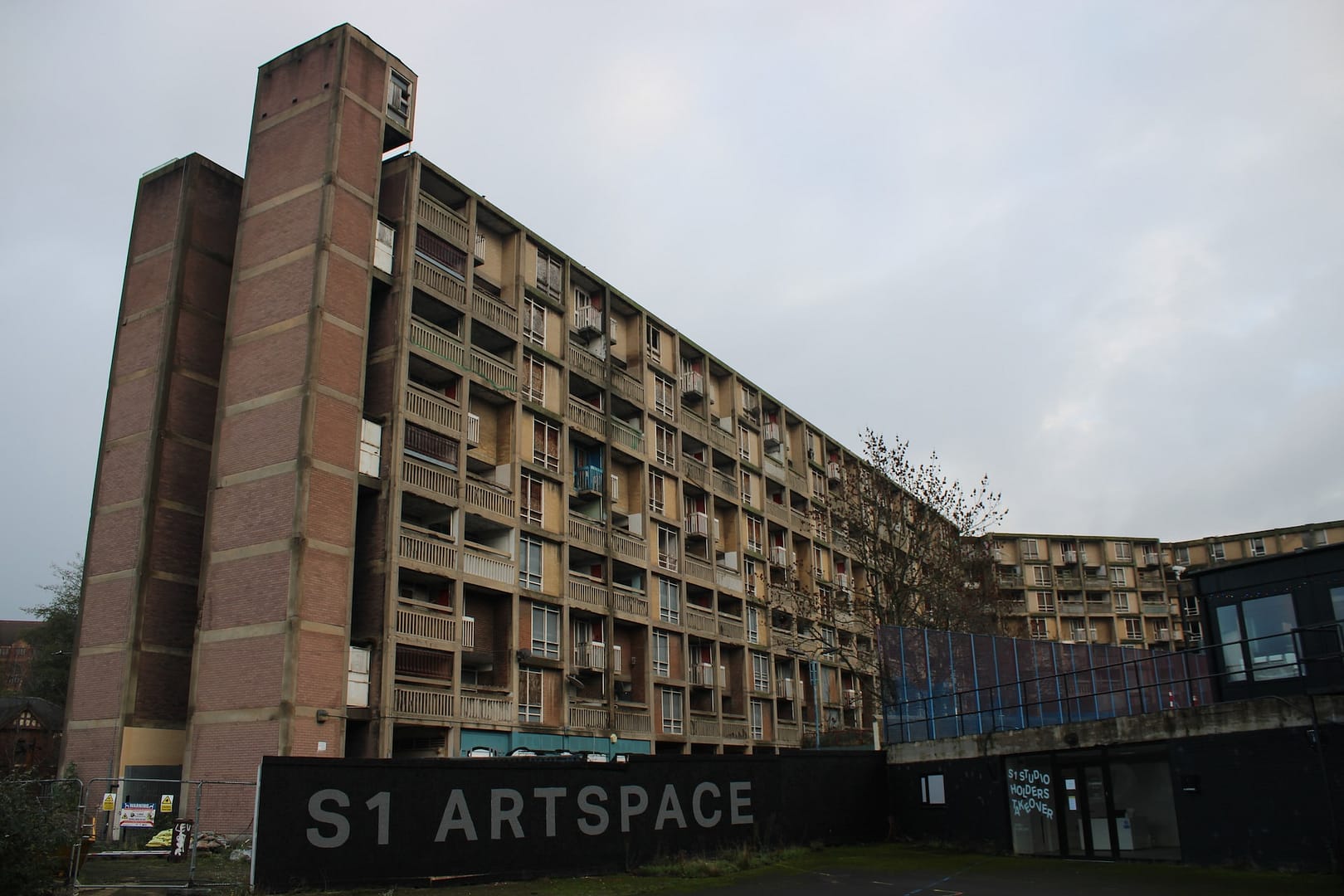The term “Ageing Infrastructure and Social Housing Disrepair” speaks to a pressing concern that affects communities across the globe. It’s a multifaceted issue that intertwines ageing infrastructure and the state of social housing, often resulting in the deterioration of homes and living conditions for vulnerable populations. In this article, we will delve into the heart of this matter, exploring what social housing disrepair entails, its underlying causes, and the impact it has on people’s lives. We’ll also discuss how this issue is manifesting in the United Kingdom, a nation grappling with ageing infrastructure and the associated challenges.
Understanding Social Housing Disrepair
Social housing disrepair is a term that encompasses a range of issues pertaining to the quality and safety of housing provided by the government or housing associations to low-income individuals and families. These homes are intended to offer affordable and adequate shelter to those in need, yet many social housing units have fallen into states of disrepair.
Social housing disrepair can manifest in various ways, affecting the fundamental elements of a home such as structural integrity, plumbing, electrical systems, and heating. Common issues include leaks, dampness, mould, faulty wiring, broken windows, and decaying walls. These problems can lead to compromised living conditions and pose serious health risks to tenants.
To fully grasp the severity of the issue, it’s essential to consider the broader context of ageing infrastructure.
Crumbling Housing Stock in the UK
The United Kingdom, like many other developed nations, grapples with ageing infrastructure, which has far-reaching consequences, including those related to social housing disrepair. The UK boasts a rich history, and many of its buildings date back centuries. While this history provides charm and character, it also presents challenges in maintaining and updating infrastructure to modern standards.
Housing stock in the UK often includes buildings that were constructed decades ago. These buildings, while historic and culturally significant, have aged and require continuous maintenance and renovation to meet contemporary living standards. Neglecting this duty has given rise to a plethora of issues, with social housing units suffering the most.
The interplay between ageing infrastructure and social housing disrepair can be likened to a domino effect. When the infrastructure ages and becomes less reliable, it puts additional stress on social housing units that are already grappling with limited resources. This, in turn, exacerbates disrepair issues and creates a cycle of deterioration.
The Vicious Cycle of Neglect
Imagine a neighbourhood in the heart of London, where charming Victorian-era social housing units stand tall. These buildings, which once exuded grandeur, have now seen better days. The roofs, once steadfast, now allow rainwater to seep through, causing ceiling leaks and dampness. The ageing electrical systems flicker, making it difficult for residents to enjoy the basic comforts of modern life. Heating systems, originally designed for a different era, are inefficient, leaving tenants shivering in the cold.
The tenants, often low-income families, are stuck in this cycle of neglect. They cannot afford to bear the costs of repairs themselves, and they rely on housing associations or local authorities to address these issues. However, these entities are also constrained by limited budgets and the daunting task of maintaining ageing infrastructure across the nation.
In many instances, the needed repairs are postponed or inadequately addressed. This further accelerates the deterioration of the housing units, rendering them even less habitable and endangering the health and safety of residents. It’s a heartbreaking situation, one that keeps these families trapped in substandard living conditions.
The Legal Framework
Recognizing the urgent need to address social housing disrepair, the UK has established a legal framework to protect the rights of tenants and hold housing providers accountable. The Homes (Fitness for Human Habitation) Act 2018 is a key piece of legislation that requires social housing to be fit for human habitation. This means that properties must be in a reasonable state of repair, free from serious hazards, and provide a safe and healthy environment for tenants.
If a tenant believes that their housing unit is not in compliance with these standards, they have the right to take legal action against their landlord or housing association. This provides a vital avenue for tenants to seek justice and compel housing providers to rectify disrepair issues.
However, while the legal framework is in place, the reality is that it can be challenging for tenants to navigate this system, especially when they face issues such as lack of legal knowledge or limited resources to pursue legal action.
The Need for Investment and Solutions
Addressing the issue of ageing infrastructure and social housing disrepair requires concerted efforts on multiple fronts. Investment is a fundamental component. The government, housing associations, and local authorities must allocate adequate resources to maintain and upgrade social housing units. This investment is not just a matter of improving living conditions; it’s an investment in the well-being of communities and the overall health of society.
In addition to financial support, there’s a need for comprehensive planning and strategies to tackle the root causes of social housing disrepair. This includes conducting regular inspections, identifying issues early, and ensuring timely repairs to prevent problems from escalating.
Another approach is the promotion of sustainable and energy-efficient housing solutions. Retrofitting older buildings with modern, energy-efficient technologies can reduce utility costs for tenants and have a positive environmental impact.
Making a Housing Disrepair Claim with National Claims
Note: You can only make a claim if you are currently living in social housing.
As a leading advocate for tenants’ rights and the pursuit of justice in cases of social housing disrepair, National Claims is dedicated to assisting individuals who find themselves in distressing housing situations. We understand the difficulties tenants face when dealing with housing disrepair issues and are committed to helping them navigate the legal system to achieve a resolution. Let’s walk you through the claims process.
Reach Out to National Claims
The first step in seeking justice for housing disrepair is to get in touch with National Claims. You can reach us through our website or by phone. Our experienced team of legal professionals is here to listen to your concerns and guide you through the process. We offer a free initial consultation, during which we’ll assess the details of your situation and determine whether you have a valid claim.
Documentation and Assessment
Once we’ve established that you have a valid claim, our team will work closely with you to document the issues you’ve been facing. This includes gathering evidence, taking photographs, and documenting the communication you’ve had with your housing provider regarding the disrepair issues. Having a thorough record of your case is crucial for building a strong claim.
Pursuing Compensation
Our goal at National Claims is to secure compensation for you based on the extent of the disrepair and its impact on your life. This compensation may cover the costs of repairs, rent rebates, or, in some cases, damages for the distress and inconvenience you’ve endured. Our legal team will tirelessly work to achieve the best possible outcome for you.

Conclusion
In the battle against social housing disrepair, organisations like National Claims play a crucial role in ensuring that tenants’ rights are protected and upheld. While it’s essential for housing providers and authorities to invest in the maintenance of ageing infrastructure, tenants should not be left to suffer in substandard living conditions. Through a combination of legal protections, advocacy, and the dedication of organisations like National Claims, we can work towards a future where everyone has access to safe and habitable housing.
Social housing disrepair is a pressing issue that impacts the lives of countless individuals and families. It’s a matter of social justice and human dignity. By acknowledging the problem, advocating for change, and supporting organisations that fight for tenants’ rights, we can collectively work towards a society where no one has to endure the hardships of living in a housing unit plagued by disrepair.
National Claims stands with tenants in their pursuit of justice. We provide the guidance, expertise, and legal support needed to hold housing providers accountable for their obligations. Our mission is to ensure that tenants, regardless of their economic circumstances, can enjoy safe and comfortable housing. Together, we can make a difference and work towards a brighter future for all.
If you find yourself facing housing disrepair issues, don’t hesitate to reach out to National Claims. We’re here to help you secure the justice you deserve and ensure that your living conditions meet the standards of human habitation. Your rights matter, and we’re here to protect them.
Contact us to get started on your claim and to find out more about how we deal with housing disrepair.
Click below to see why we are one of the most trusted claims management companies in the UK.

We’re proud of our excellent customer reviews
We thrive on delivering exceptional service and ensuring our clients’ satisfaction. Don’t just take our word for it. Check out some of our independent reviews to see what our clients have to say.
Excellent

This firm is excellent, they sorted out my car pay out and injury claim very fast, they always communicate with you all the time.

My accident case was dealt with confidence and with great result of the outcome, especially James kept me informed all the time.

I was very impressed at the way my inquiry was treated. I was listened to attentively and everything I needed to know was explained to me.






